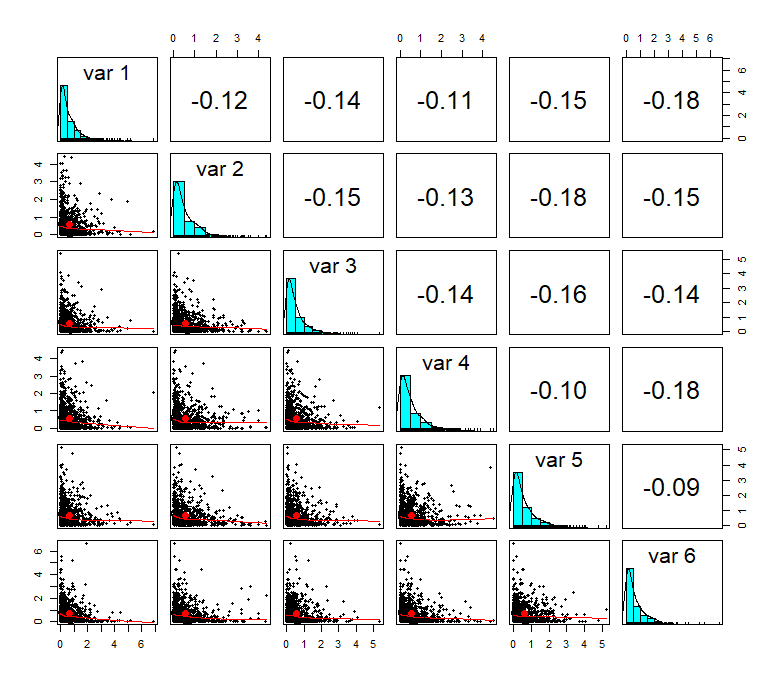I would like to use normal copulas to set the dependence of N random variables. That is, I want the correlation $\rho$ to be equal between all variables. I am doing this with the copula package in R. This seems straightforward enough when $\rho$ is positive or when N = 1, however I get odd results when $\rho$ is negative and N > 1:
library(psych)
library(copula)
N = 6 #The number of random variables or dimensions
m = ((N-1)*N)/2 #Number of correlated pairs
correlations = rep(-.95, m) #Set all correlations to be the same value, in this case -0.95
listExp = list(rate = 2)
lists = list(listExp, listExp, listExp, listExp, listExp, listExp) #A list of exponential distributions that is N long
mv.NE = mvdc(normalCopula(correlations, dim = N, dispstr = "un"), rep("exp",N),lists) #create multivariate distribution
x.samp = rMvdc(1000, mv.NE) #sample from multivariate distribution
pairs.panels(x.samp) #plot results
As you can see, the measured spearman's correlations are well below the set $\rho$ of 0.95. Does this arise from an error in this script, or is this a fundamental limitation of normal copulas? If its the latter, is there a different method I could use instead?

